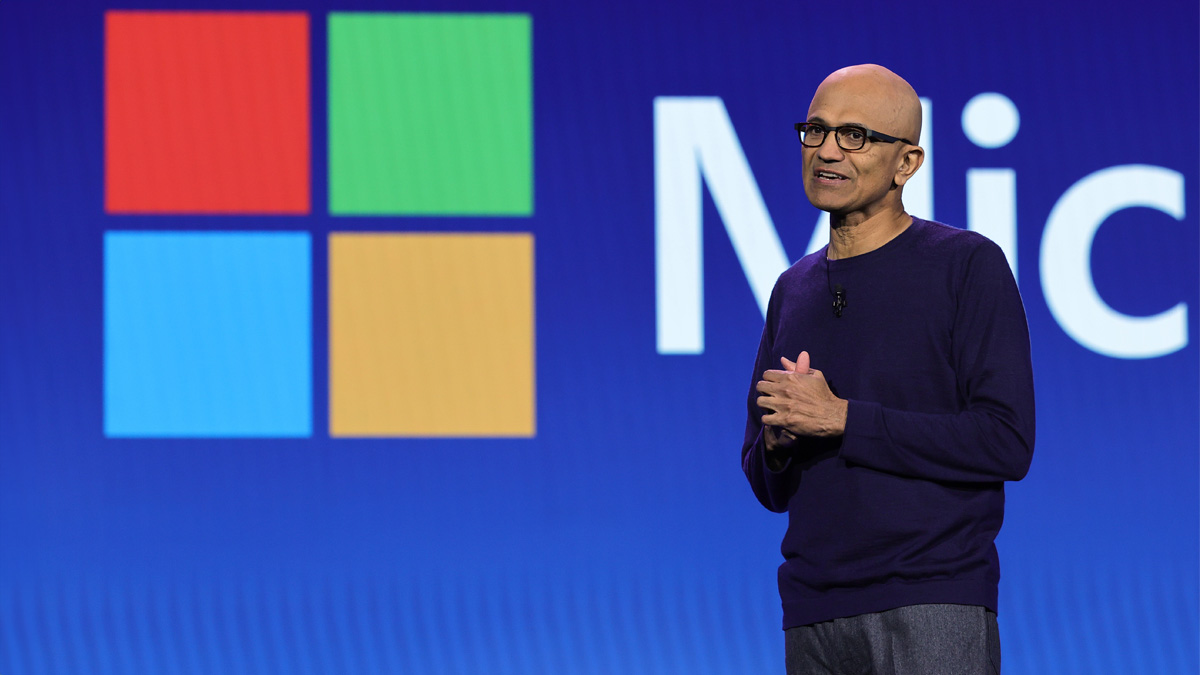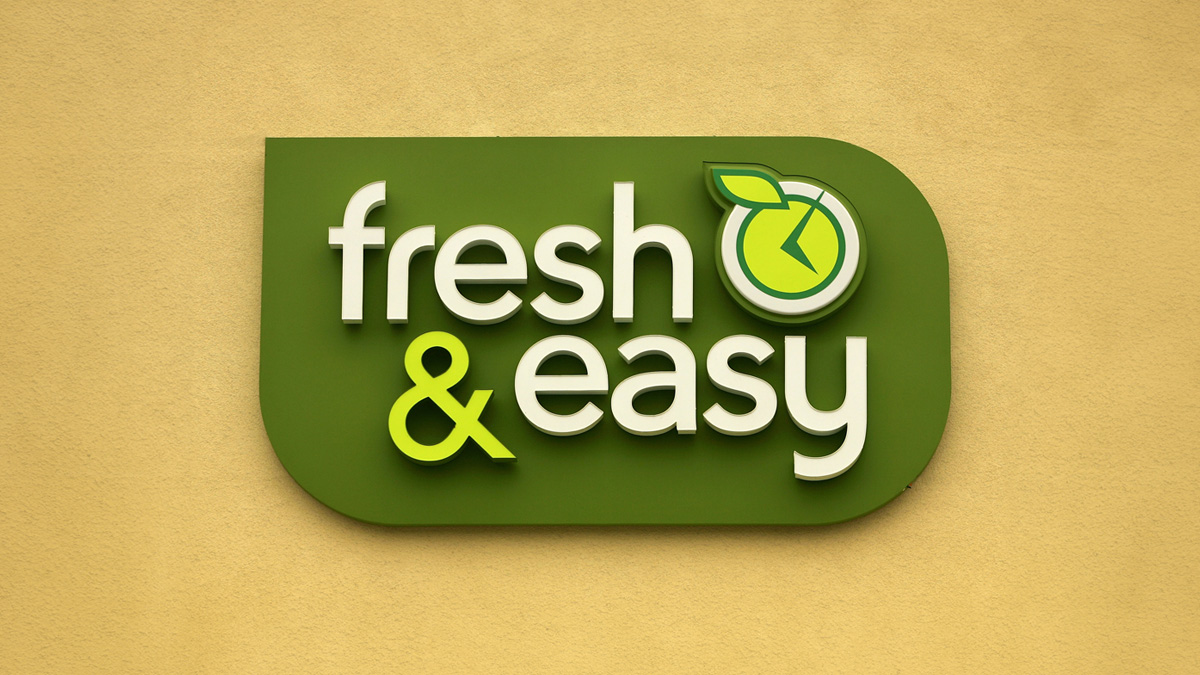Building B&M: Speed, strategy and success
We speak exclusively to long-time CEO Simon Arora about the strategy behind building B&M and how it nearly all ended after less than a year
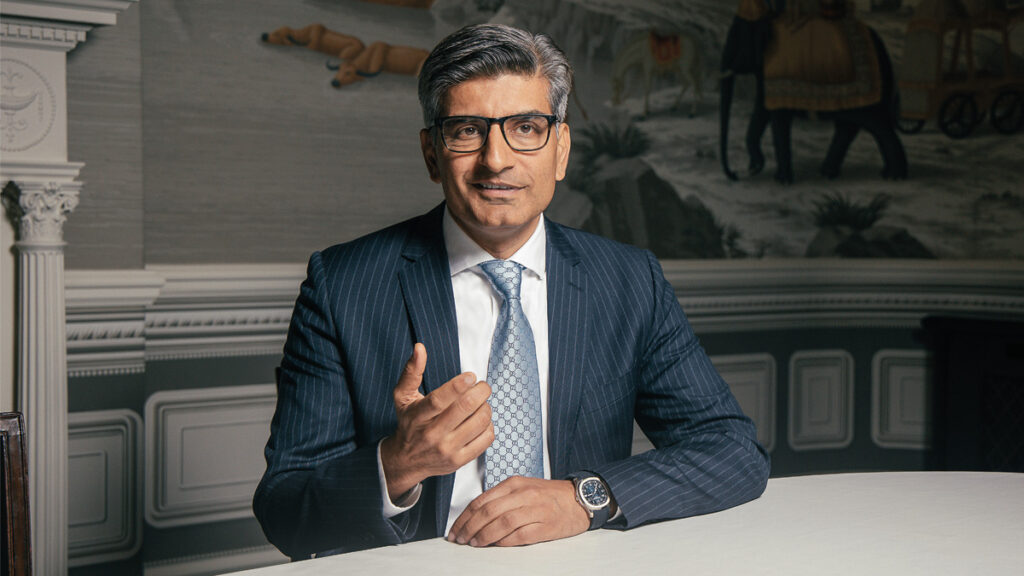
In 2004, Simon Arora and his two brothers, Bobby, and Robin, bought a discount retail chain in the North West of England for £525,000. That chain had 21 shops. Today, B&M is valued at more than £5billion and is part of the FTSE 100, making it one of the biggest retailers in Europe. Simon Arora stood down as chief executive at the end of 2022 after nearly two decades at the top of the business.
In our Business Leader podcast interview with Simon, he explains the remarkable story of how B&M went from an ailing medium-sized business based in Blackpool to one of the biggest companies in the UK, and how it nearly all ended after just a year.
Take me back to 2004 when you bought B&M. How did you know about the business and what was there when you acquired it?
I think the best way to answer that question is to give some context in terms of my career up to that point, because that very much sets the scene and explains the rationale. I was born in Manchester. My parents came to the UK from Delhi in 1968, I was born in 1969. They were market traders. I spent my childhood watching hard-working parents do outdoor markets. They sold handicrafts that they were importing from India and supplied members of the public through markets. Through my teenage years that changed into a small cash-and-carry warehouse in Manchester supplying independent retailers and market traders.
I did well at school. They were the classic hardworking immigrants who scrimped and saved and got their sons a good education. I had the opportunity to read law at Cambridge. After graduating, I started a career as a professional in London. I had two years with McKinsey, strategy consulting, then a year with 3i in venture capital. That was followed by a year in the financial markets at Barclays as a city trader.
But what that tells you is that I had three jobs in four years upon graduating. That indicates that, at heart, I wanted to be an entrepreneur. I came from a small business family.
I should also mention that within our nuclear family, we suffered a bit of a tragedy when I was 17. I lost my father. He was 44. One has read about other people who suffered parental loss at a relatively early age. I think it’s fair to say that it can, for a lot of people, put fire in your belly – in terms of wanting to exert control on your life, as opposed to feeling completely out of control when you go through something like that.
So in the mid-1990s, at the age of 25, I called my younger brother Bobby and we discussed setting up a new company called Orient Sourcing Services Limited. The aim of that business was to import housewares and home furnishings, predominantly from Asia, and supply UK retailers. Everyone from Tesco and B&Q through to the independent shopkeeper that had previously been served by our late parents’ business.
However, wearing my McKinsey strategy hat, I was aware that we were a middleman. And to cut a long story short, by the age of 30, we’d sold that business. I thought at that point “job done” and set about trying to learn some hobbies and build a house for ourselves and that sort of thing.
I can tell you that within a year the warm glow of having done a financial transaction very quickly wore off. I was bored to the point of desperation.
That brings us to December 2004. In the run-up to that acquisition of B&M, I did nothing more sophisticated than do a Companies House search for retail businesses. I didn’t want to do a start-up – I needed a minimum turnover of £5million to £10million – and I didn’t want to bet the bank on going into the retail sector because I was mindful that my brothers and I were importers, distributors, and whilst we had sourcing and supply chain expertise, we didn’t really know anything about retail.
So we bought the business. It cost £525,000. It comprised of 21 somewhat scruffy bargain shops dotted around the North West. It was based in Blackpool. The business had a turnover of about £50million but was loss-making. On one analysis, if we hadn’t bought it, it was going to run out of cash within six to eight weeks. It was a turnaround, distressed situation.
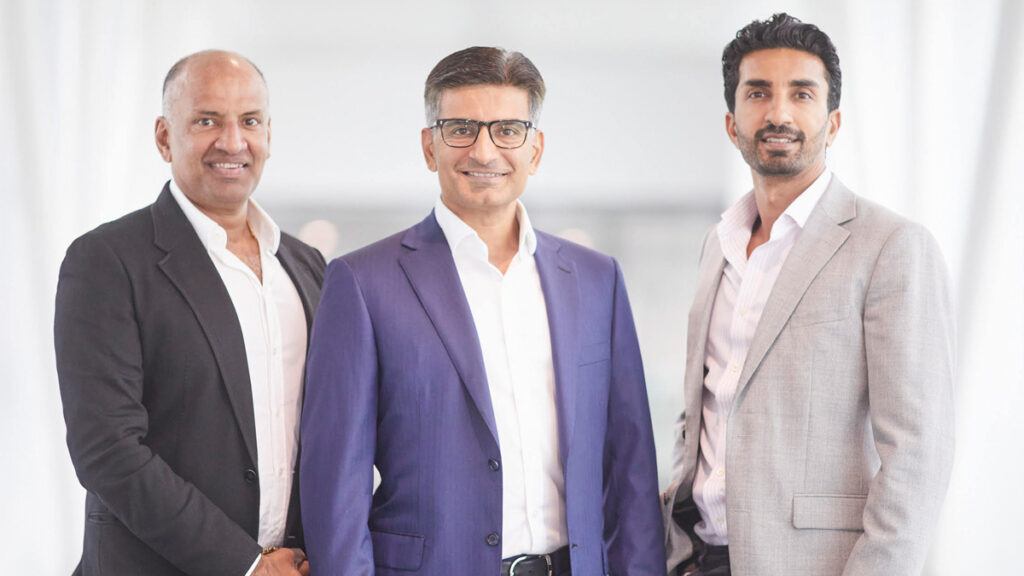
How crucial has impatience been for you as an attribute? As you touched on, you moved between jobs. Has that been a key driver for you since? Is it something that pushed you forward as a CEO?
You could call it impatience. If you were walking around the offices of B&M, you’d see a strapline on the walls every now and then that says “Welcome to B&M speed”. What I’m referring to is that, yes, certainly through my 20s and 30s, I was a man in a hurry. But on a more serious level. I do consider that for growing businesses, disruptive businesses, it’s better to be fast and 80-90 per cent right than being 100 per cent right but slow. Another way of putting that is the phrase “If you’re going to fail, fail fast”.
We consider speed to be an intrinsic part of B&M’s competitive advantage. The way to think about that is from the point at which we are offered a vacant store through to getting it shop-fitted, through to the speed at which a checkout colleague gets the customer through the till.
Even on the day-to-day commercial decision-making around product and pricing strategy – just be quick because speed wins. When you are competing against larger corporates that are more bureaucratic and have more layers of management, it can be a source of competitive advantage when you are 20 shops in the North West.
How important was working in Orient [Sourcing Services Limited] to what happens next? You told investors and analysts on various earnings calls that the supply chain was the magic sauce for B&M.
The way to answer that question is to go back to one of the things I learned at 3i in venture capital. When assessing whether to invest in the business, to exaggerate the point, it’s all about management, management, management. Another way of putting that is that it’s better to back strong managers in a mediocre business model than it is to back mediocre managers in an excellent business model.
I recognised that a competency that my brother and I had was this sourcing and supply chain management of consumer goods out of Asia. The reason why it’s so valuable in B&M’s subsequent success is that we were able to split the roles to play to those strengths. My younger brother Bobby, who’s a couple of years younger than myself, had spent all his life since leaving school on exactly that – sourcing consumer goods and managing that supply chain. So he took on the role of group trading director and became responsible for all the product, all the prices and what quantities were brought in.
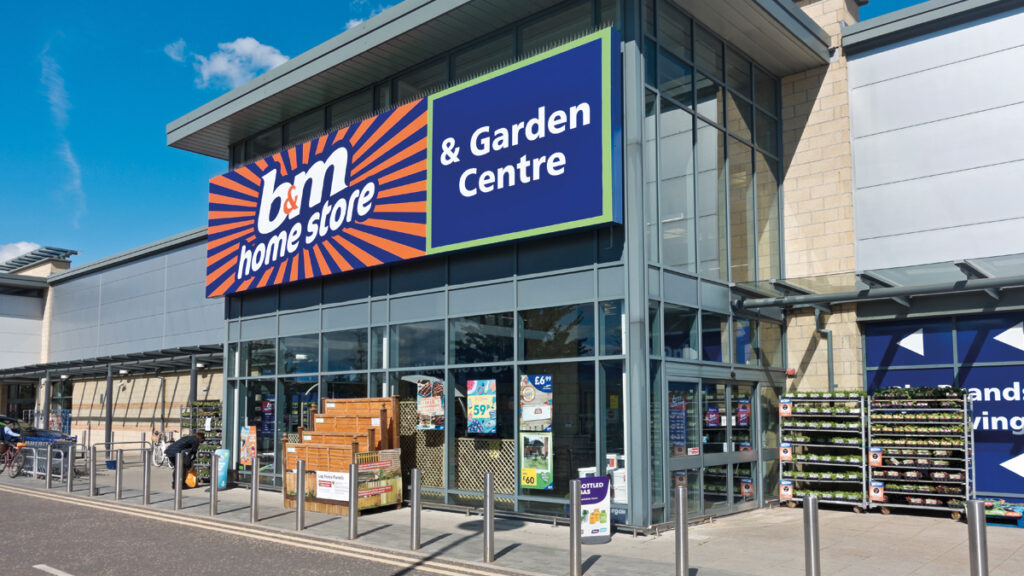
Unusually for a chief exec, which was I suppose my nominal job title, I never got involved. Friends or business associates would ask me about a product that we sell or a supply we deal with. I never got involved. I left it entirely to Bobby because I knew that, in Bobby, I had a world-class operator for that function. That then allowed me to have the bandwidth to do all the other stuff – be that distribution, store operations, strategy, the finance side and, for me, in particular store rollout.
I was able to devote to a store opening programme which, with hindsight, was quite remarkable. That’s probably one of the things that I’m really proud of about B&M’s growth. I think I got to the 10,000 hours of acquiring UK shops over my 17-18 years at B&M. Perhaps I should explain what I mean by 10,000 hours. The book is called Outliers: The Story of Success by [Malcolm] Gladwell. It talks about whether it’s in athletics, music, business, or academia: if you do 10,000 hours of something, you have every chance of being world-class at it.
From the 21 shops we acquired to the 710 stores at B&M in the UK that we had when I left, I acquired every one. I didn’t have a property director. That’s something like 15 million square feet of selling space in the UK alone. I’m told by people in the commercial property industry that no individual has ever done that. So that’s my 10,000 hours. I just got very good at it.
B&M didn’t advertise – why not?
It’s a great question. The business was built over 17-18 years of consecutive revenue growth through word of mouth. That is the most cost-effective marketing and the cheapest too. One of the reasons we didn’t have loyalty cards, or a sophisticated marketing programme or advertising campaigns is that it didn’t play to our strengths. It’s not something that we know or claim to have any particular competency in.
We took the view that rather than having 1-2 per cent of our revenues invested in advertising, reinvest that in price. We wanted our prices to be our advert. We wanted our prices to be disruptive so that the consumer would tell their neighbour, tell a friend, and tell their relatives about this new store that’s opened up in town and the prices are 20-30 per cent cheaper than what they used to.
When did it become clear that the loss-making business that you inherited was becoming profitable and you were on to something?
It wasn’t plain sailing. In the first year of ownership, my brother and I were horrified within six months or so all the products we’d bought from our Orient sourcing days, and we had filled the shops with weren’t selling as we thought it would. We had made the mistake of just taking the full ranges from our previous business, putting them in the store, and neglecting the categories that we didn’t have previous knowledge of. There was an imbalance in what we were selling.
I can share with you that about six months in I thought “This is not going to work. We brought in all the products that we know, it’s selling okay, but this business is not turning around fast enough.” At the time, we had a larger competitor that had been around for many years called Home Bargains, based in Liverpool. A really good business run by an extremely talented family called the Morris family. I made a discreet approach to them via their auditor.
I offered Home Bargains the business, B&M, for £3million. I thought: “We’ve sort of stabilised it, but we are struggling to know how to make this a success. Maybe if we just walk away with a £2million profit for a year’s work, we’ll go and find something else.”
The response we got back through a third party – so it is hearsay – was: “No thanks, we will buy it from the administrator when you go bust.”
Now if there’s something that’s going to put fire in your belly, it’s that. So we carried on, we persevered. Bobby and the teams put a lot of effort into those categories that weren’t so familiar to us – be that toys or grocery. We made some people changes, and recruited better talent. I worked very hard on making the supply chain more sophisticated – the process from which product flows from a factory through to the shelf.
A lot of IT went into making our supply chain the best in class. Together, those various elements allowed us to turn the corner. I think the year after buying it, it was making about £3million profit. Last year, I think it made about £600million EBITDA. So it’s been a phenomenal journey, but there were lots of bumps along the way.
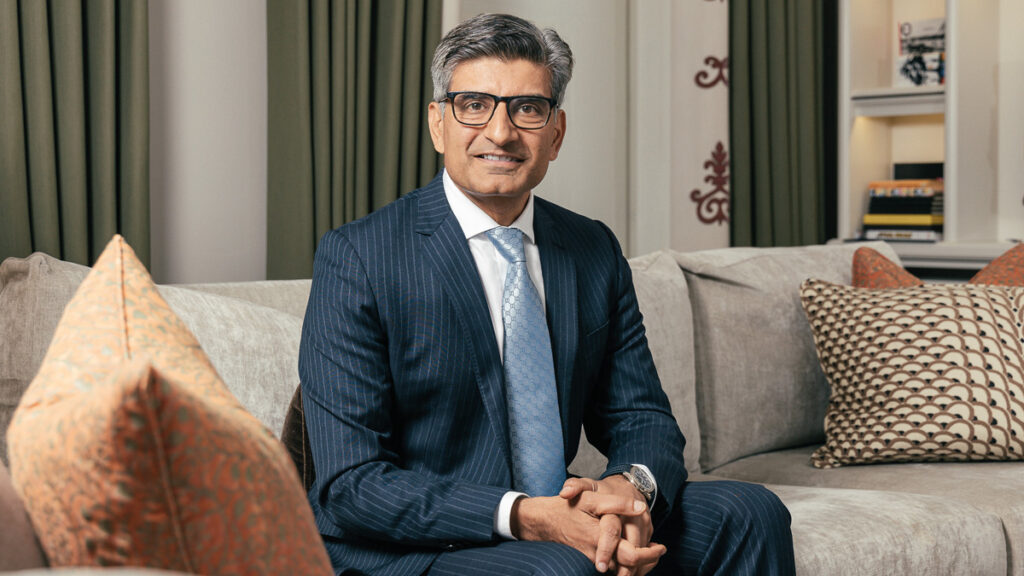
What’s it like working with your brothers and how important has family been as part of growing this business?
It’s absolutely the foundation of our success and B&M would not be the success it is today without the strength of that sibling relationship.
I’m the eldest of three brothers. I can share with you that we were taught as kids that one plus one equals 11. In other words, there’s a synergy that is achieved by working together. When I meet businesspeople, I say that that synergy may be an incredible relationship between the chief exec and perhaps the CFO, or it might be a husband-and-wife team, or it might be two friends from school who have gone into business together. But if you can get it right, you can get a huge amount of value from it.
For me, the important aspects of that relationship and the way that we made it work were firstly, a very clear understanding of who does what, so that you’re not stepping on each other’s toes. For us, Robin Arora, my youngest brother, was in charge of all the FMCG and grocery buying, Bobby was the group training director, and I did everything else. I didn’t interfere in those other two [areas] and likewise they didn’t interfere in my side of the workload.
The second aspect that’s important is trust. Without trust – either in the competency or in just how they operate ethically and in business – then you’re not going to have that synergy.
Then the third, which is equally important, is an equal level of work ethic. If you have siblings in business together and there are different work ethics – there is someone who is very much nine-to-five and wants to take four or five weeks of holiday a year whereas somebody else is working every hour that God sends – it’s not going to work, you’re going to have tensions. I was very fortunate in that between us three siblings, all three of those boxes existed for us.
I also don’t want to underestimate the broader support of the extended family. So sisters-in-law – my wife, for example – all of whom sacrificed in terms of either our physical presence or our emotional presence around the family kitchen table for prolonged periods. Inevitably when we were together as a family, the brothers would go off and start having a business conversation in the middle of the main course. Our long-suffering children and spouses would just have to put up with it and roll their eyes as usual. But all the spouses were to an extent involved in various projects in the business as well. So, it was very much a family affair for many years.


